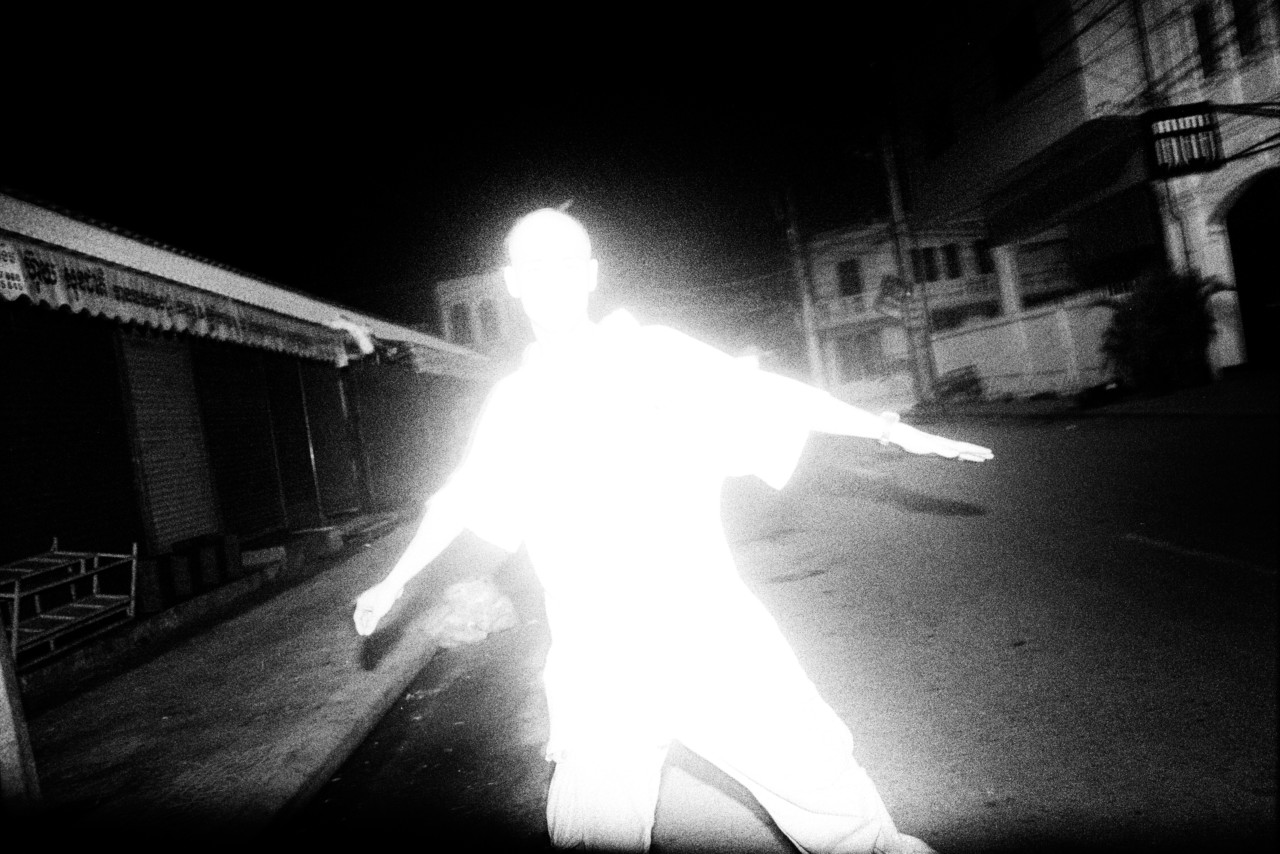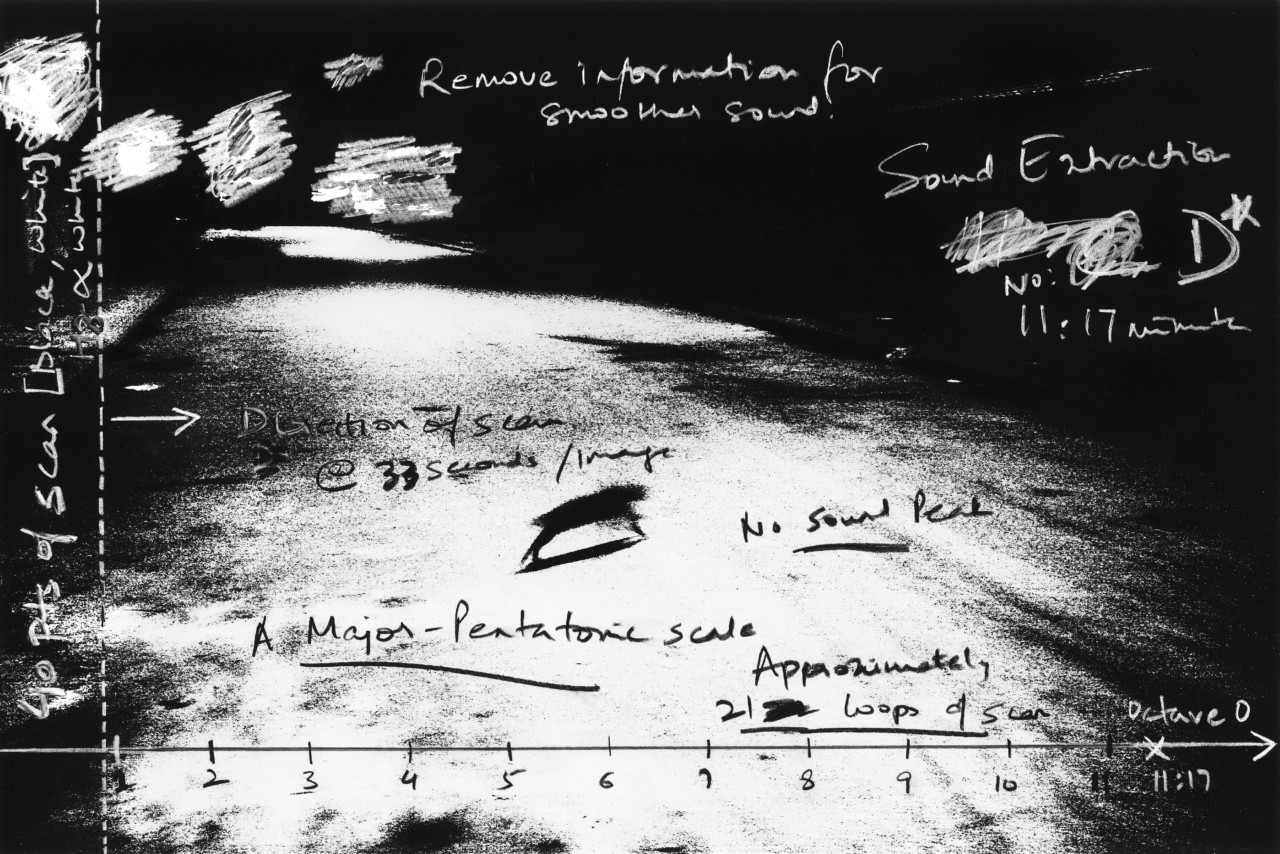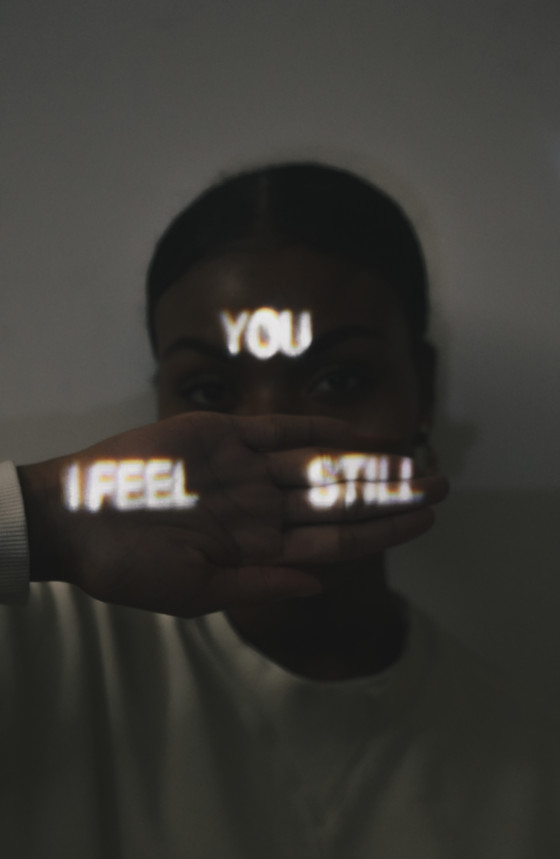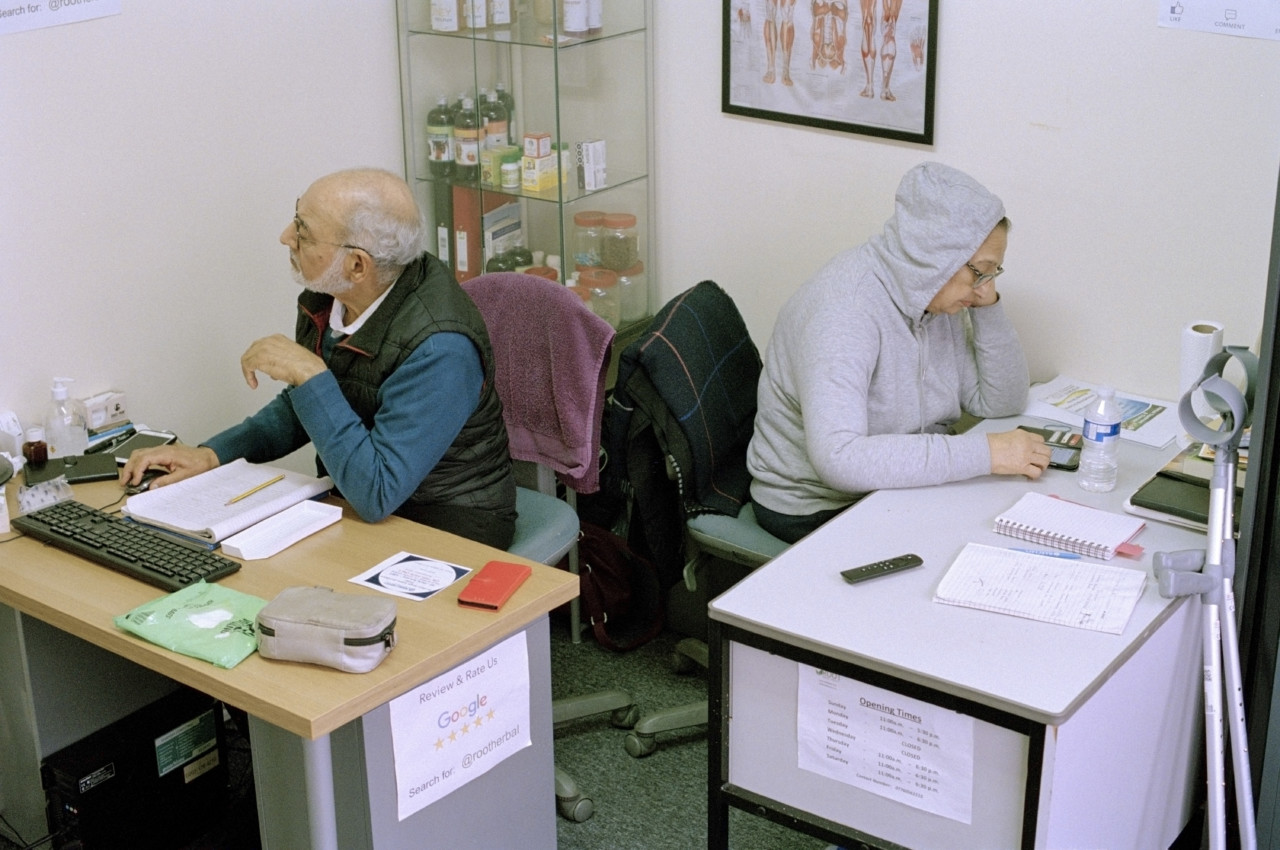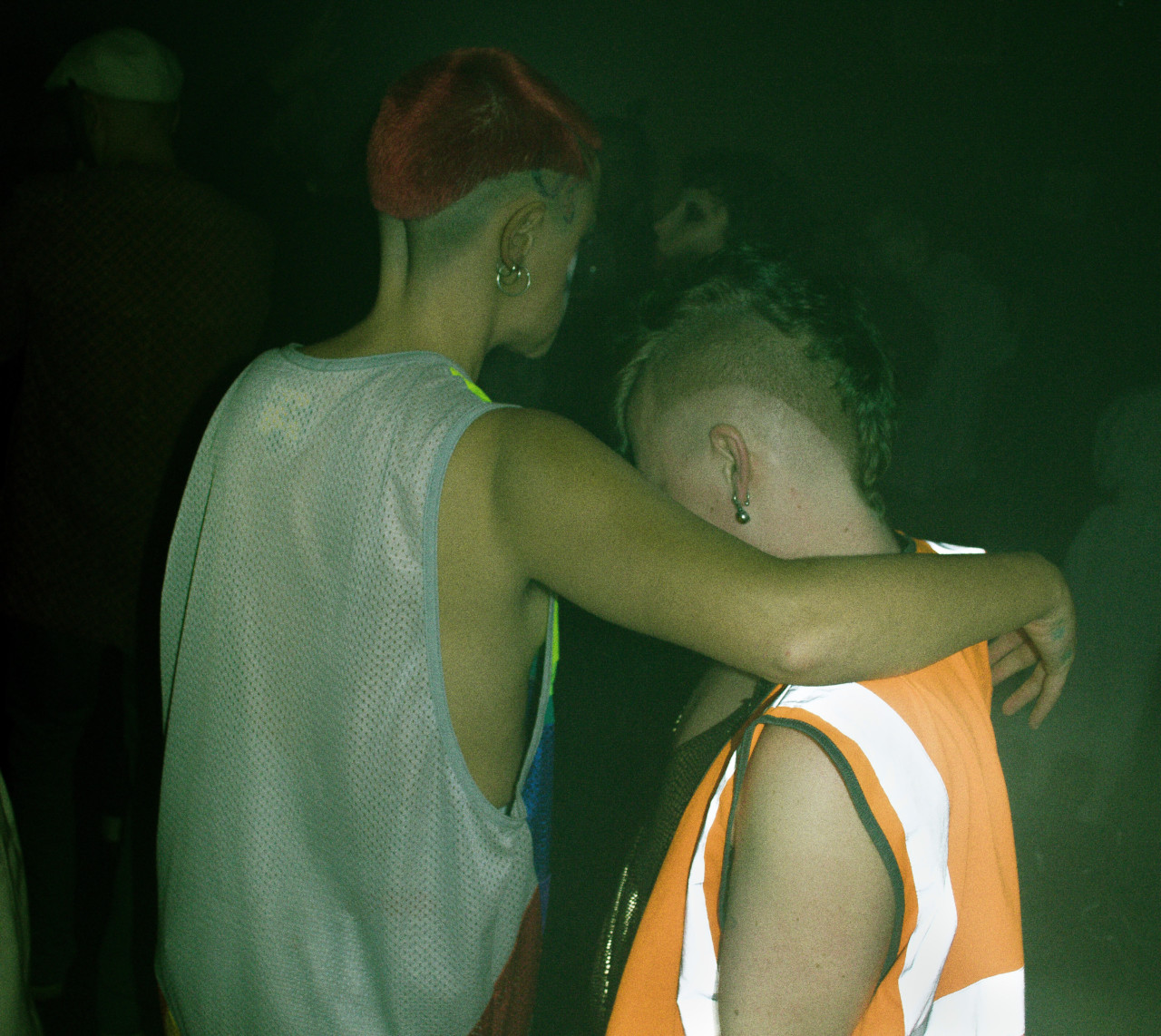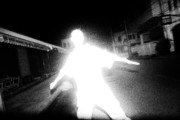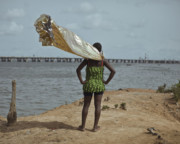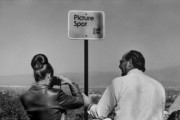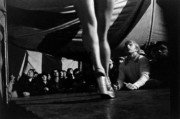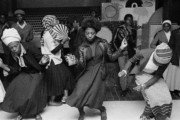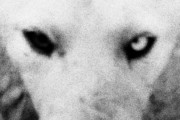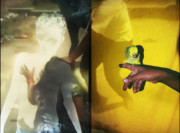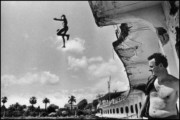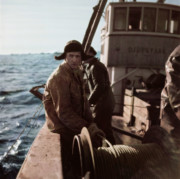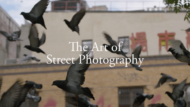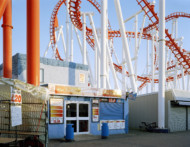Putting Hearts and Souls on the Line
Young participants of the recent Creativity Works course created 24 photographic projects inspired by “their London”
London is a macrocosm of cultures, lesser-known histories, and politics which have a profound personal impact: no one understands this better than the young people who make the city their home. Through a collaboration between Magnum Photos and Create Jobs — an organization which promotes employability amongst underrepresented groups in the arts and digital sectors — twenty-four young creatives recently produced photographic projects responding to the brief, set by the creative team at the HudsonBec Group, “What is Your London?”. They crafted a kaleidoscope of interpretations in response to the question. Projects spanned many topics: the troubling aspects of the fashion industry, colloquial languages and expressions of belonging, inclusive underground music scenes, domestic sagas, underrepresented voices realized through family stories, odes to well-loved spaces through portraiture and still life, the emotional impacts of knife crime, mental health in LGBTQ+ communities, and gendered experiences of navigating the city.
Participants worked closely with Magnum photographer Sohrab Hura, as well as Emma Bowkett (Director of Photography, Financial Times Weekend Magazine) and Max Ferguson (Founding Editor Splash & Grab Magazine, Director of Photography, Port Magazine), who curated the project’s final exhibition.
The projects, collectively titled “Please Mind the Flash” were exhibited at Hoxton Arches in London on December 10-11, 2019 and printed in a collective zine of the same name.
“This intensive seven-week programme provides essential tools, both creative and practical, for people to enter the workplace with a deeper understanding of it, and this very action inspires confidence,” said Emma Bowkett. “My own experience of mentoring this year’s students was immensely fulfilling. What is beautiful about a broad theme is that it allows artists to move around the concept freely and emerge with a project uniquely personal. I am most proud and wish to thank these 24 young Londoners for unflinchingly exploring social, political and cultural narratives with honesty and strength. And for coming together in support of each other and in love, and that this was shared throughout the broader team.” On the present state of the creative industries, she adds, “We all need to be active in making this a more inclusive space.”
“It’s hard to argue with the standard of the photographs that these young Londoners have produced on the seven-week intensive workshop,” Max Ferguson said, “I don’t think there are many degree shows of BA Photography courses that these students’ pictures would have looked out of place at. That alone seems remarkable given that many had never studied photography at any level before. The subject choice was interesting too. As the wider photography community continues to make photographs about the “other”, these students chose to photograph the things they knew – creating personal and honest projects. Coming out of these workshops I am thinking more about the value of collaborations within communities and my responsibility to diversify the voices I listen to.”
Running for the second year in a row, the course also benefitted from the insight offered by the course’s 2018 participants, who delivered a workshop on their experiences of working on, and since, the program. “Engaging in the arts and arts education has been so, so valuable in helping me to feel confident about my own creative practices. It is why myself and the rest of the 2018 group decided to run workshops for young people too,” said alumni Dubheasa Lanipekun. Read more about last year’s cohort’s thoughts on breaking in to the photography industry here.
Sohrab Hura spent five days with the participants at the beginning of the course. The group made a lasting impression on the Magnum photographer, who wrote the following comments on the importance of artistic integrity and maintaining a unique voice. They are extracted from a letter Hura addressed to the students after the course concluded.
“…This larger system/s of photography (and life) will always try to exert pressure on you to comply with its own expectations. It will try to funnel you into what it might consider worthy of acceding space to and in doing so it will also try to take away what has been most precious to you – your voice. Think about it… Think about who are in the positions of power to make such considerations and define the system. This system is usually very dull – I’m a product of it so I know. I’m a man, I speak and write in English, I live in a big city back home in North India, I come from an upper – middle class just like most other photographers, curators, writers and critics who are able to enter and exist in this system. We are aware of it but we never admit it and at times to satisfy our own guilt, we might decide to let some others in but it is we who decide whom to allow, to make that needed correction. Even consideration is our privilege, you see.
In all of you I see 24 distinct bright colours that can take away some of the dullness, should you choose to carry on photographing your own way and infuse the system with what you do. I believe that all that each one of you has chosen to work on is precious – whether it’s Tishon’s powerful portraits of women in her family, or Yvonne’s questioning of language in slangs that I had initially struggled to understand, it only made me realize my own shortcomings. Whether it was Capella’s photographs of her family that felt like the peeling off of half dried clots off my wound or Eric’s meanderings into the edges of London that seemed as lost as him in a beautiful way, and his experiments with sound. Whether it was Dan being protective of and photographing his friends with care or Nelly looking at herself and using her photography to come to terms with whatever baggage that she might have been carrying. By opening herself up to others, allowing them to also come to term with themselves, I do not have that courage and I’m in awe […] So I thought of the trust you all had in the rest of us who were there and how much you gave to us during the course by way of putting your hearts and souls on the line… ”
Below, we share the work of 11 of the participants of the course, along with their texts describing the projects.
Ellie Radford – Is Paradise An Island of Perfection?
London is the hub of the fashion industry, a place where people dedicate their lives to pursuing this idolised career. I began my journey chasing the allure of fashion and the art form of clothing. My personal journey has opened my eyes to the fragmented reality of this industry where creativity is intertwined with idolisation, nepotism, and the challenges of femininity. This series is part of a larger project investigation into the connotations of colour associations and how these can be used as a form of silent communication. I wanted to express this story not just through photography, but from a mixed-media perspective, to give depth, context, and ambiguity to the series, so the viewer could relate my story to their individual experience of idolised expectations.
Daniel Norman – Soph
Soph is the first chapter of an ongoing project looking at the issues of mental health and loneliness experienced by individuals in the LGBTQ+ community. Those who identify as LGBTQ+ tend to be at a higher risk of issues with their mental health. The project looks at individuals in the context of their bedrooms. These often solitary spaces can be places of safety and freedom, but also ones in which the issues surrounding mental health or feelings of loneliness might be intensified. The work sees the bedroom as an extension of its inhabitant, capturing the mundanity and the routine that exists in our everyday lives. The images shown in the project follow Soph, who uses both ‘she/her’ and ‘he/him’ pronouns.
Eric King – The Edge
The project was formed through an experimental process of exploring the area around the artist’s home. Focusing on the suburbs – a part of London less-observed – the project evolved through a process of making photographs along the rural/urban edges. The one image chosen to be on display in the exhibition depicts an intersection of the human element with nature, a hint, which leaves the viewer wondering. The experimental nature of the project produced a variety of image formats, from literal depictions of the area to digitally augmented images which toy with the liminality of the city’s edge. The Edge is a personal journey producing photography that reflects the juxtaposition of Londoners’ busy lives with the banality of the city’s periphery, and questions our relationship with that environment.
Yvonne Gyamfi – I Feel You Still
Language, at its basis, is a tool for communication.
The English Language is in a continuous state of transience; forever shifting and upgrading to meet the needs of the new generation. We often use dictionaries as a rule book instead of a guide, but what does it mean when the rules are broken?
I Feel You Still demonstrates the intimacy of communicating in ways often not valued or deemed improper by broader society. Colloquial terms and phrases that gain prominence in small communities subconsciously build solidarity as well as create homes in people.
“I’m not going to say things the ‘right’ way but in ways that are filled with intimacy due to our shared experience.”
Ways of speaking have a purpose far beyond the essential transference of information. Those ‘mispronunciations’ and grammatical errors lead us to each other, and there is a beauty there — a warmth to that expression.
Someone is hearing you and saying “I understand”.
Jai Toor – Yet Another Day
Yet Another Day examines the relationship between Jai Toor’s grandparents as they seek comfort and well-being in their everyday lives. Domestic spaces and the workplace provide an integral setting for this story of a generation who have lived in West London for 40 years. Through tender observation, Toor’s images allow us to view the nuanced themes of compassion and anxiety that occur in family life. His grandparents have a long history of health issues, however, this has not stopped them working and overcoming the issues they face. With non- linear narrative, we are able to glimpse a day-in-the-life scenario of two people who are his family.
Jazz Noble – Part of the Furniture
Part Of The Furniture explores the nature of the public house as a personalised, homely entity. Focusing on pub rituals and their universality, Jazz hones in on the relationships that are fostered within these spaces, and the ways in which the surrounding environment accentuates this atmosphere of comfort and ease. Having previously used photography solely to document her personal life, Jazz hopes to use this project to illustrate her connection to pubs in a similarly intimate fashion. As a professional pint pourer, and with landlords in the family, the integral part these spaces play in communities is an important concept to Jazz. What’s more, with the ongoing decline in pub numbers around the country, the celebration of these institutions is more important now than ever before.
Tishon Nicholson – The Inner Me
The Inner Me is a personal project focusing on four generations of the artists family- four generations of strong Black Caribbean women in the UK. Tishon’s desire to document this history is driven by their lack of representation within mainstream media. As an exploration of what has changed and what has remained the same, these untold stories are voiced.
Bilimae Latimer – A Tories Gift
Photographer Bilimae Latimer, a resident of Barking and Dagenham, started this project with the intent of opening up a conversation to a wider audience around the impact of the rise in knife crime in the London borough. The project seeks to underline the importance of protecting and investing in young people. Even though recent years have seen a significant rise in knife crime in parallel with 68% cuts to youth services funding over nine years of Conservative government, London councils are planning further reductions in youth workers in 2020. The use of purple within the still-life image acknowledges the purple ribbon campaign, a community-led effort to end knife crime started by the family of Jodie Chesney, a resident of Barking and Dagenham, one of the most recent victims of the violence. A poem by Kiomie Hall, the girlfriend of Hasan Ozcan, a victim of knife crime, is also shown.
Gwen Datyner – A Girl’s Walk Home
50% of women say they always or often feel unsafe walking alone at night. 61% of women regularly take steps to avoid being sexually assaulted, according to YouGov in 2019. For women living in any city, travelling home late at night, whether after a late-night shift or night out, can be a daunting task that leaves them with feelings of high anxiety. As an artist and photographer, Gwen Datyner wanted to create images that explored the fear of the trek home and the issues facing women as they make these journeys. To initiate this project, Gwen asked women on her Instagram and her family and friends what they do when they are traveling alone at night. She then exaggerated these responses to create these fantasies in her photographs, magnifying feelings of anxiety and concern.
Melissa Gardner – All Under One Roof Raving
Rather than a homogenised form of entertainment, music is one of the strongest methods of showing individuality, ideas, and political beliefs. For many young Londoners, it’s a safe space – a world free of judgement and discrimination. Music is a universal language, and on dancefloors people are united regardless of who they are and where they come from. London prides itself on its diversity, and Melissa Gardner passionately believes it’s what makes the city great. Gardner wanted to show just a small slice of the hedonistic unification to be found on a London dance floor on any given weekend. With an intention to react against social media’s filtered documentation of life, this series aims to show our city at 2am through a totally non-sugar-coated lens.
Capella Buncher – And the Livin’ is Easy
Channel 4’s shallow and sensational Benefits Street, Jacob Rees-Mogg’s assertion that Grenfell victims ‘lacked common sense’, Carole Malone’s depiction of a ‘sub (human) class’ who are incapable of feeling ‘love or guilt’… the list goes on. Inspired by the anger she feels at the way poor people are demonised in the British media, Capella Buncher’s response concentrates on the lives of her working-class family. Her desire was to subvert two-dimensional caricatures through the presentation of unique characters with complex existences. Instead of the tabloid tales of spurious sensation – antisocial behaviour, benefits scrounging and general ‘thickness’ – Buncher visualises the psychological and abstract elements of belonging to a low socio-economic class. The work especially focuses on strained relationships and mental illness: often-disregarded consequences of subjugation. Zooming into different family members, she explores her teenage brother’s struggle with depression, and the space he shares with their 42-year-old half-brother, Jim. She observes her father’s disillusionment and isolation, and her coping mother.
Creativity Works: Visual Storytelling was a free 7-week programme offered to creatives aged 18-24 at the beginning of their career, providing mentoring from Magnum photographer Sohrab Hura, Magnum Education Manager Sonia Jeunet, as well as experts from It’s Nice That, Anyways and Lecture in Progress. The course is a Mayor’s Fund for London programme supported by Berkeley Foundation, Citi Foundation and Arts Council England, and delivered by Create Jobs at A New Direction and Magnum Photos in partnership with The HudsonBec Group and with in-kind support by Wex Photo Video, Fujifilm UK and Newspaper Club.



